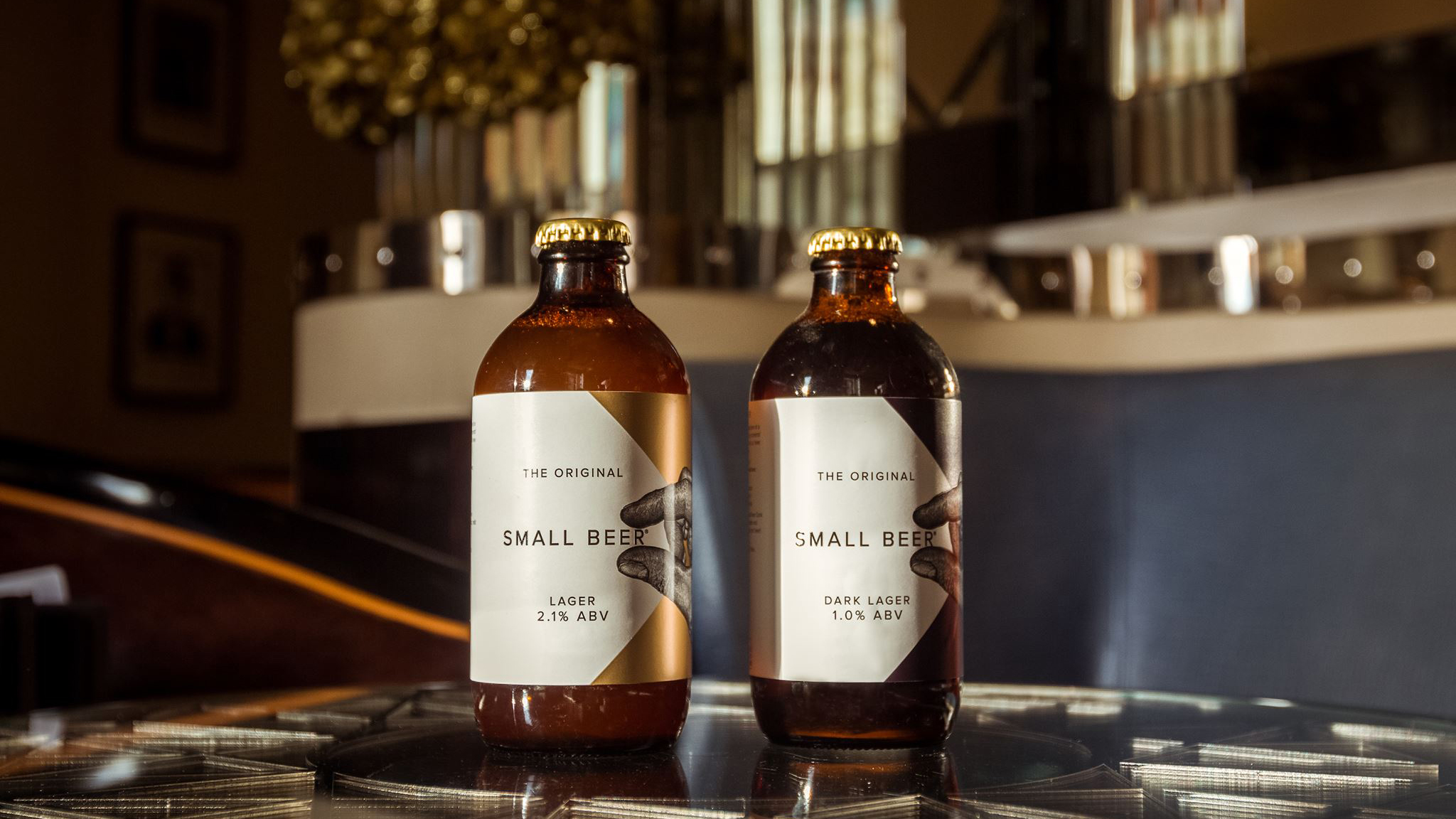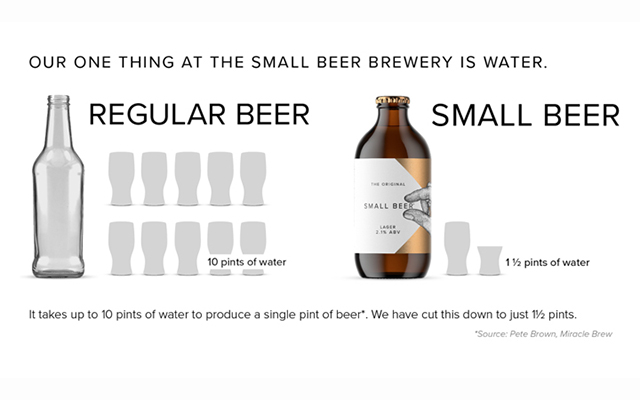Challenger to Watch 2019: Small Beer
For over-committing to small
Credit: Small Beer Co
Hands up who’s doing dry January? If you’re still on that particular wagon you have my utmost respect and I raise my glass to you. Instead of the full abstaining challenge (too difficult!) I’ve resolved to have a ‘dry-ish 2019’ as, like many others, I’ve started to change my habits for the long-term.
‘Mindful drinking’ is not just a media friendly buzzword, it points towards a potential real cultural shift in our attitude to boozing. In the UK (where a pint in the pub is as much a part of our national identity as a cup of tea) sales of non-alcoholic and low alcohol beer rose by 38% in 2018 compared to the same 12-week period the previous year, and in a recent poll 52% of people surveyed agreed that no-alcohol beer has become more socially acceptable in the past two years. Ocado, the UK online supermarket, reported that sales of non-alcoholic wine increased by 42% in 2018, with sales of no-and-low spirits and beers increasing by 87%.
Credit: Small Beer Co
Like the rise of plant-based eating, this changing of attitudes and boom in sales for low/no-alcohol is both fuelled by, and a reaction to, an explosion of options in a previously underserved category.
Our 2016 Challenger to Watch Seedlip has blazed the trail for grown-up sober sophistication, and it’s an exciting category to watch - we’re seeing a flurry of vinegars, kombuchas, non-alcoholic gins, and all manner of booze-free-beers from both mainstream and craft brewers looking to persuade us we can have it all – tasty, grownup drinks with no hangover at the end.
The Small Beer Company is one such craft brewer, and while there were many emerging brands we could have featured in this category, Small Beer gets the nod for its innovative, single-minded approach.
Credit: Small Beer Co
“Sustainability and innovation has been baked into the company’s approach from the beginning”
Founded in 2017 by James Grundy and Felix James, two former Sipsmith Gin colleagues, at Small Beer Co. low alcohol brewing isn’t an afterthought or line extension, it is everything – this “world’s first ‘small beer’ brewery” only brews at between 0.5 and 2.8% ABV.
By researching and reviving the brewing methods of the 1700s (when beer was safer to drink than water) Felix and James’ approach doesn’t de-alcoholise regular beer, removing the flavour at the same time as the alcohol, instead it uses a significantly longer lagering fermentation period to brew at a lower ABV as the norm.
Sustainability and innovation has been baked into the company’s approach from the beginning – to conserve water it has reduced the number of pints of water needed to create a pint of beer from 10 to 1.5, operates a ‘dry floor’ policy (which means the brewery floor is not systematically hosed down), and all packaging is recycled and recyclable – and it looks great too.
Credit: Small Beer Co
Currently available from most good craft beer stockists, and across the UK through Majestic Wines, this year sees a partnership with both Greene King and Fuller’s - so we’ll be seeing, and partaking of, a lot more small beer in 2019.
























